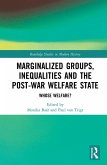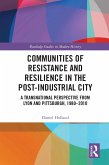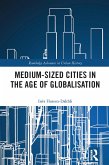Marginalized Groups, Inequalities and the Post-War Welfare State (eBook, ePUB)
Whose Welfare?
Redaktion: Baár, Monika; Trigt, Paul van
44,95 €
44,95 €
inkl. MwSt.
Sofort per Download lieferbar

22 °P sammeln
44,95 €
Als Download kaufen

44,95 €
inkl. MwSt.
Sofort per Download lieferbar

22 °P sammeln
Jetzt verschenken
Alle Infos zum eBook verschenken
44,95 €
inkl. MwSt.
Sofort per Download lieferbar
Alle Infos zum eBook verschenken

22 °P sammeln
Marginalized Groups, Inequalities and the Post-War Welfare State (eBook, ePUB)
Whose Welfare?
Redaktion: Baár, Monika; Trigt, Paul van
- Format: ePub
- Merkliste
- Auf die Merkliste
- Bewerten Bewerten
- Teilen
- Produkt teilen
- Produkterinnerung
- Produkterinnerung

Bitte loggen Sie sich zunächst in Ihr Kundenkonto ein oder registrieren Sie sich bei
bücher.de, um das eBook-Abo tolino select nutzen zu können.
Hier können Sie sich einloggen
Hier können Sie sich einloggen
Sie sind bereits eingeloggt. Klicken Sie auf 2. tolino select Abo, um fortzufahren.

Bitte loggen Sie sich zunächst in Ihr Kundenkonto ein oder registrieren Sie sich bei bücher.de, um das eBook-Abo tolino select nutzen zu können.
With its focus on different marginalized groups: migrants and people with disabilities, this volume offers novel perspectives on the national and international dimensions of the post-war welfare state in Western Europe and North America.
- Geräte: eReader
- mit Kopierschutz
- eBook Hilfe
Andere Kunden interessierten sich auch für
![Marginalized Groups, Inequalities and the Post-War Welfare State (eBook, PDF) Marginalized Groups, Inequalities and the Post-War Welfare State (eBook, PDF)]() Marginalized Groups, Inequalities and the Post-War Welfare State (eBook, PDF)43,95 €
Marginalized Groups, Inequalities and the Post-War Welfare State (eBook, PDF)43,95 €![Philanthropic Celebrity in the Age of Sensibility (eBook, ePUB) Philanthropic Celebrity in the Age of Sensibility (eBook, ePUB)]() Adrian WesolowskiPhilanthropic Celebrity in the Age of Sensibility (eBook, ePUB)42,95 €
Adrian WesolowskiPhilanthropic Celebrity in the Age of Sensibility (eBook, ePUB)42,95 €![Communities of Resistance and Resilience in the Post-Industrial City (eBook, ePUB) Communities of Resistance and Resilience in the Post-Industrial City (eBook, ePUB)]() Daniel HollandCommunities of Resistance and Resilience in the Post-Industrial City (eBook, ePUB)42,95 €
Daniel HollandCommunities of Resistance and Resilience in the Post-Industrial City (eBook, ePUB)42,95 €![The War on Welfare (eBook, ePUB) The War on Welfare (eBook, ePUB)]() Marisa ChappellThe War on Welfare (eBook, ePUB)29,95 €
Marisa ChappellThe War on Welfare (eBook, ePUB)29,95 €![Displaced Persons, Resettlement and the Legacies of War (eBook, ePUB) Displaced Persons, Resettlement and the Legacies of War (eBook, ePUB)]() Jessica StrojaDisplaced Persons, Resettlement and the Legacies of War (eBook, ePUB)41,95 €
Jessica StrojaDisplaced Persons, Resettlement and the Legacies of War (eBook, ePUB)41,95 €![Medium-Sized Cities in the Age of Globalisation (eBook, ePUB) Medium-Sized Cities in the Age of Globalisation (eBook, ePUB)]() Inès Hassen-DakhliMedium-Sized Cities in the Age of Globalisation (eBook, ePUB)42,95 €
Inès Hassen-DakhliMedium-Sized Cities in the Age of Globalisation (eBook, ePUB)42,95 €![Disability and Tourism in Nineteenth- and Twentieth-Century Italy (eBook, ePUB) Disability and Tourism in Nineteenth- and Twentieth-Century Italy (eBook, ePUB)]() Luciano MaffiDisability and Tourism in Nineteenth- and Twentieth-Century Italy (eBook, ePUB)41,95 €
Luciano MaffiDisability and Tourism in Nineteenth- and Twentieth-Century Italy (eBook, ePUB)41,95 €-
-
-
With its focus on different marginalized groups: migrants and people with disabilities, this volume offers novel perspectives on the national and international dimensions of the post-war welfare state in Western Europe and North America.
Dieser Download kann aus rechtlichen Gründen nur mit Rechnungsadresse in A, B, BG, CY, CZ, D, DK, EW, E, FIN, F, GR, HR, H, IRL, I, LT, L, LR, M, NL, PL, P, R, S, SLO, SK ausgeliefert werden.
Produktdetails
- Produktdetails
- Verlag: Taylor & Francis eBooks
- Seitenzahl: 210
- Erscheinungstermin: 22. Oktober 2019
- Englisch
- ISBN-13: 9780429754746
- Artikelnr.: 57982386
- Verlag: Taylor & Francis eBooks
- Seitenzahl: 210
- Erscheinungstermin: 22. Oktober 2019
- Englisch
- ISBN-13: 9780429754746
- Artikelnr.: 57982386
- Herstellerkennzeichnung Die Herstellerinformationen sind derzeit nicht verfügbar.
Monika Baár is Professor by Special Appointment of Central European Studies at Leiden University. She is principal investigator of the ERC-funded research project Rethinking Disability: the Global Impact of the International Year of Disabled Persons (1981) in Historical Perspective. Paul van Trigt is postdoctoral researcher in the ERC-project Rethinking Disability: the Impact of the International Year of Disabled Persons (1981) in Global Perspective at the Institute of History, Leiden University.
Introduction (Monika Baár and Paul van Trigt) Part One: Marginalized Groups
and International Welfare Practices 1. Rescuing the European Welfare State:
The Social Affairs Committee of the European Communities, 1953-1962 (Brian
Shaev) 2. From Territorialized Rights to Personalized International Social
Rights? The Making of the European Convention on the Social Security of
Migrant Workers (1957) (Karim Fertikh) 3. The International Labour
Organization (ILO) and the 'Capitalist' Economic Shift in the International
Vocational Rehabilitation Policy of Disabled People after World War II.
(Gildas Brégain) 4. Bordering (on) a Welfare State: Examining Refugee
Assistance as 'International Welfare' (Evan Easton-Calabria) 5. Social
Rights in Neoliberal Europe. The Disability Policy of the European Union
and the End of the Cold War (Paul van Trigt) Part Two: Marginalized Groups,
International Developments and National Welfare State Practices 6. The
History of a Phantom Welfare State: the United States (Rose Ernst) 7.
Managing the Transition from War to Peace: Post-war Reconstruction and
Citizenship-based Welfare in Italy and France (Giacomo Canepa) 8. Poverty,
(Un)employment, Marginalization: the Impact of the 'Neoliberal Turn' on
Disabled Citizens in Britain (Monika Baár) 9. Welfare Defended, Questioned,
Complemented? Belgian Welfare Arrangements in the 1970s-1980s from the
Perspective of Disability Organizations (Anaïs Van Ertvelde) 10. From
Liberal to Restrictive: the Danish Welfare and Immigration Policy,
1983-2006 (Heidi Vad Jønsson) Conclusion and Outlook 11. The Welfare State
and Exclusion: Human Rights and the Basic Protection of Marginalized Groups
(Veronika Flegar)
and International Welfare Practices 1. Rescuing the European Welfare State:
The Social Affairs Committee of the European Communities, 1953-1962 (Brian
Shaev) 2. From Territorialized Rights to Personalized International Social
Rights? The Making of the European Convention on the Social Security of
Migrant Workers (1957) (Karim Fertikh) 3. The International Labour
Organization (ILO) and the 'Capitalist' Economic Shift in the International
Vocational Rehabilitation Policy of Disabled People after World War II.
(Gildas Brégain) 4. Bordering (on) a Welfare State: Examining Refugee
Assistance as 'International Welfare' (Evan Easton-Calabria) 5. Social
Rights in Neoliberal Europe. The Disability Policy of the European Union
and the End of the Cold War (Paul van Trigt) Part Two: Marginalized Groups,
International Developments and National Welfare State Practices 6. The
History of a Phantom Welfare State: the United States (Rose Ernst) 7.
Managing the Transition from War to Peace: Post-war Reconstruction and
Citizenship-based Welfare in Italy and France (Giacomo Canepa) 8. Poverty,
(Un)employment, Marginalization: the Impact of the 'Neoliberal Turn' on
Disabled Citizens in Britain (Monika Baár) 9. Welfare Defended, Questioned,
Complemented? Belgian Welfare Arrangements in the 1970s-1980s from the
Perspective of Disability Organizations (Anaïs Van Ertvelde) 10. From
Liberal to Restrictive: the Danish Welfare and Immigration Policy,
1983-2006 (Heidi Vad Jønsson) Conclusion and Outlook 11. The Welfare State
and Exclusion: Human Rights and the Basic Protection of Marginalized Groups
(Veronika Flegar)
Introduction (Monika Baár and Paul van Trigt) Part One: Marginalized Groups
and International Welfare Practices 1. Rescuing the European Welfare State:
The Social Affairs Committee of the European Communities, 1953-1962 (Brian
Shaev) 2. From Territorialized Rights to Personalized International Social
Rights? The Making of the European Convention on the Social Security of
Migrant Workers (1957) (Karim Fertikh) 3. The International Labour
Organization (ILO) and the 'Capitalist' Economic Shift in the International
Vocational Rehabilitation Policy of Disabled People after World War II.
(Gildas Brégain) 4. Bordering (on) a Welfare State: Examining Refugee
Assistance as 'International Welfare' (Evan Easton-Calabria) 5. Social
Rights in Neoliberal Europe. The Disability Policy of the European Union
and the End of the Cold War (Paul van Trigt) Part Two: Marginalized Groups,
International Developments and National Welfare State Practices 6. The
History of a Phantom Welfare State: the United States (Rose Ernst) 7.
Managing the Transition from War to Peace: Post-war Reconstruction and
Citizenship-based Welfare in Italy and France (Giacomo Canepa) 8. Poverty,
(Un)employment, Marginalization: the Impact of the 'Neoliberal Turn' on
Disabled Citizens in Britain (Monika Baár) 9. Welfare Defended, Questioned,
Complemented? Belgian Welfare Arrangements in the 1970s-1980s from the
Perspective of Disability Organizations (Anaïs Van Ertvelde) 10. From
Liberal to Restrictive: the Danish Welfare and Immigration Policy,
1983-2006 (Heidi Vad Jønsson) Conclusion and Outlook 11. The Welfare State
and Exclusion: Human Rights and the Basic Protection of Marginalized Groups
(Veronika Flegar)
and International Welfare Practices 1. Rescuing the European Welfare State:
The Social Affairs Committee of the European Communities, 1953-1962 (Brian
Shaev) 2. From Territorialized Rights to Personalized International Social
Rights? The Making of the European Convention on the Social Security of
Migrant Workers (1957) (Karim Fertikh) 3. The International Labour
Organization (ILO) and the 'Capitalist' Economic Shift in the International
Vocational Rehabilitation Policy of Disabled People after World War II.
(Gildas Brégain) 4. Bordering (on) a Welfare State: Examining Refugee
Assistance as 'International Welfare' (Evan Easton-Calabria) 5. Social
Rights in Neoliberal Europe. The Disability Policy of the European Union
and the End of the Cold War (Paul van Trigt) Part Two: Marginalized Groups,
International Developments and National Welfare State Practices 6. The
History of a Phantom Welfare State: the United States (Rose Ernst) 7.
Managing the Transition from War to Peace: Post-war Reconstruction and
Citizenship-based Welfare in Italy and France (Giacomo Canepa) 8. Poverty,
(Un)employment, Marginalization: the Impact of the 'Neoliberal Turn' on
Disabled Citizens in Britain (Monika Baár) 9. Welfare Defended, Questioned,
Complemented? Belgian Welfare Arrangements in the 1970s-1980s from the
Perspective of Disability Organizations (Anaïs Van Ertvelde) 10. From
Liberal to Restrictive: the Danish Welfare and Immigration Policy,
1983-2006 (Heidi Vad Jønsson) Conclusion and Outlook 11. The Welfare State
and Exclusion: Human Rights and the Basic Protection of Marginalized Groups
(Veronika Flegar)







